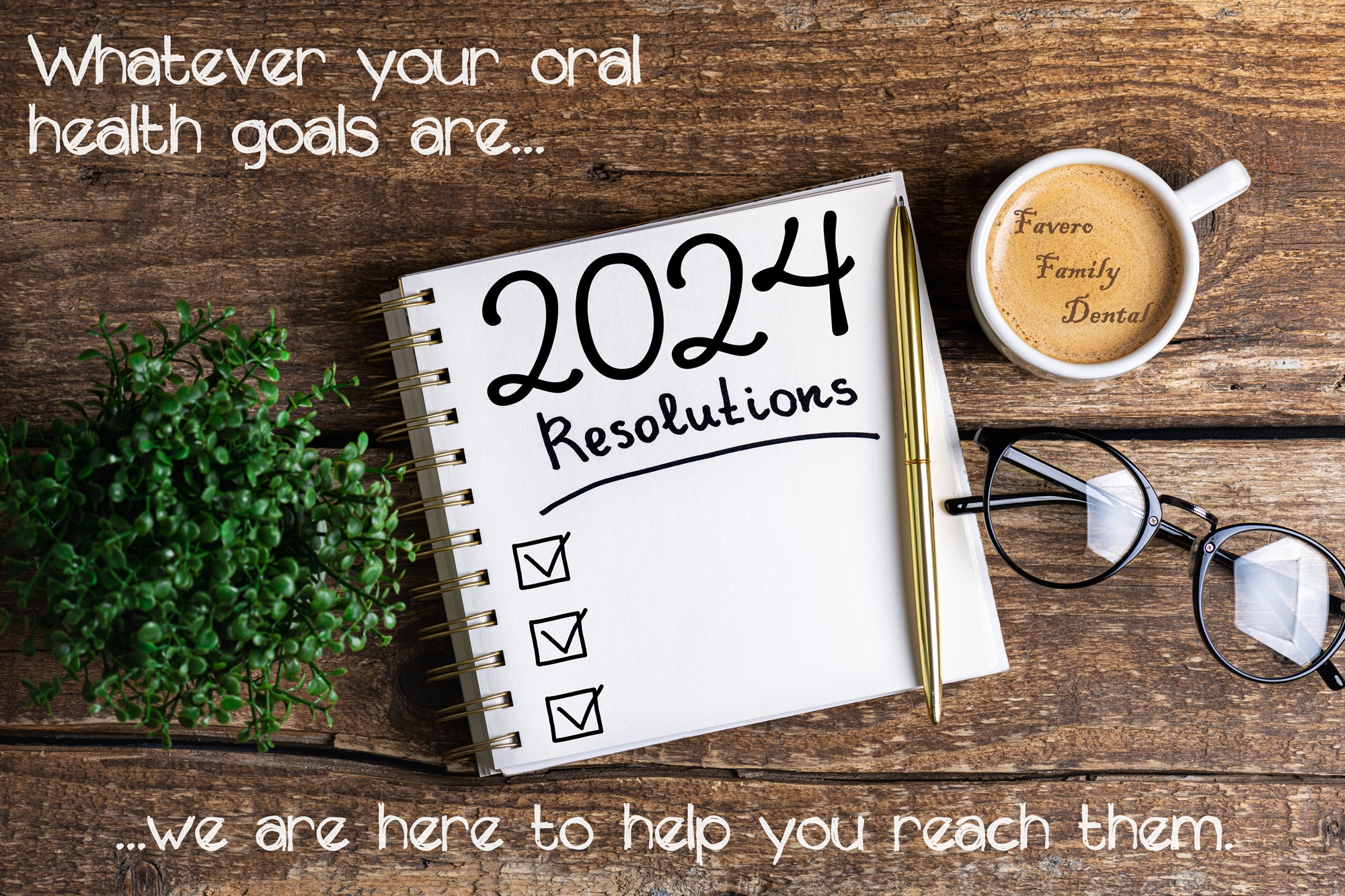
Setting Oral Health Goals
The New Year is a great time to commit to making positive changes in your life. Many people resolve to improve their health, including their oral health. Some of those resolutions may be:
- Brush twice a day
- Improve brushing technique
- Floss daily
- Visit the dentist twice this year
- Limit sugary drinks
- Drink more water
Is there a difference between a resolution and a goal?
The short answer is yes. A resolution is a more general statement about what you would like to change or improve in your life. On the other hand, a goal is a specific, measurable target that you want to achieve.
How often do you consider your dental goals? Have you ever thought about where you would like your dental health to be in 5 years? 10 years? 20 years?
Why Set Dental Goals?
Your oral health is directly connected to your overall well-being. Poor oral health can contribute to a range of health issues from gum disease to heart problems. By establishing dental goals, you not only prioritize your smile, but also invest in your overall health.
Assessing Your Current Oral Health
The first step in setting effective dental goals is to assess your current oral health. Take note of any existing issues, such as cavities, gum disease, or tooth sensitivity. Understanding your starting point allows you to tailor your goals to address specific concerns and lay the foundation for a healthier smile.
Setting Oral Health Goals
We are here to help you not only make but achieve your oral health goals. Whether you want a whiter smile, straighter teeth, healthier gums, or to simply focus on a lifetime of cavity prevention, we will help you develop a plan to reach your goals.
The key to successful dental goals lies in their practicality and sustainability. You have the power to make incredible changes in your life, and your dental health is no exception.
Leave a reply →